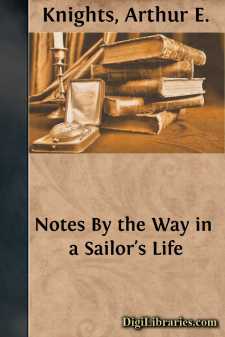Categories
- Antiques & Collectibles 13
- Architecture 36
- Art 48
- Bibles 22
- Biography & Autobiography 813
- Body, Mind & Spirit 142
- Business & Economics 28
- Children's Books 13
- Children's Fiction 10
- Computers 4
- Cooking 94
- Crafts & Hobbies 4
- Drama 346
- Education 46
- Family & Relationships 57
- Fiction 11828
- Games 19
- Gardening 17
- Health & Fitness 34
- History 1377
- House & Home 1
- Humor 147
- Juvenile Fiction 1873
- Juvenile Nonfiction 202
- Language Arts & Disciplines 88
- Law 16
- Literary Collections 686
- Literary Criticism 179
- Mathematics 13
- Medical 41
- Music 40
- Nature 179
- Non-Classifiable 1768
- Performing Arts 7
- Periodicals 1453
- Philosophy 64
- Photography 2
- Poetry 896
- Political Science 203
- Psychology 42
- Reference 154
- Religion 513
- Science 126
- Self-Help 84
- Social Science 81
- Sports & Recreation 34
- Study Aids 3
- Technology & Engineering 59
- Transportation 23
- Travel 463
- True Crime 29
Sort by:
by:
George Bell
To judge of this question fairly, it will be necessary to cite the passage in which it occurs, as it stands in the folio, Act III. Sc. 8., somewhat at large. "Eno. Naught, naught, all naught! I can behold no longer; Th' Antoniad, the Egyptian admiral, With all their sixty, fly, and turn the rudder; To see't, mine eyes are blasted. Enter Scarus. Scar. Gods and goddesses, all the whole...
more...
by:
George Bell
LATIN DRINKING SONG BY RICHARD BRAITHWAIT. I have been surprised, from the facility with which the author of "Drunken Barnaby" seems to pour out his Leonine verse, that no other productions of a similar character are known to have issued from his pen. I am not aware that the following drinking song, which may fairly be attributed to him, has ever appeared in print. It was evidently unknown to...
more...
by:
George Bell
ON THE PROPOSED SUGGESTIONS FOR PRESERVING A RECORD OF EXISTING MONUMENTS. The following communications have reached us since the publication of our remarks on the proposed Monumentarium Anglicanum (No. 73. p. 217. et seq.). They serve to show how much interest the subject has excited among those best qualified to judge of the great utility of some well-organised plan for the preservation of a record...
more...
by:
George Bell
The Arke of Artificial Day. Before proceeding, to point out the indelible marks by which Chaucer has, as it were, stereotyped the true date of the journey to Canterbury, I shall clear away another stumbling-block, still more insurmountable to Tyrwhitt than his first difficulty of the "halfe cours" in Aries, viz. the seeming inconsistency in statements (1.) and (2.) in the following lines of the...
more...
by:
Various
The first of May, eighteen hundred and fifty-one, will be remembered in the Calendar for centuries after those who witnessed its glories shall have passed away. Its memory will endure with our language; and the Macaulays and Hallams of the time to come will add brilliancy to their pages by recounting the gorgeous yet touching ceremonial of this great Apotheosis of Peace. Peace has occasionally received...
more...
by:
George Bell
Notes. ILLUSTRATIONS OF CHAUCER, NO. VI. Unless Chaucer had intended to mark with particular exactness the day of the journey to Canterbury, he would not have taken such unusual precautions to protect his text from ignorant or careless transcribers. We find him not only recording the altitudes of the sun, at different hours, in words; but also corroborating those words by associating them with physical...
more...
by:
George Bell
NOTE UPON A PASSAGE IN "MEASURE FOR MEASURE." The Third Act of Measure for Measure opens with Isabella's visit to her brother (Claudio) in the dungeon, where he lies under sentence of death. In accordance with Claudio's earnest entreaty, she has sued for mercy to Angelo, the sanctimonious deputy, and in the course of her allusion to the only terms upon which Angelo is willing to remit...
more...
A Quick Passage. To the editor of the "China Mail." Dear Sir:—I have just read with much pleasure the report of the quick passage made by the sailing-ship "Muskoka" from Cardiff to this port in ninety-two days. This is really a good trip and the captain and his officers may be complimented on having done so well, for, as you know, the ship is of large tonnage and the complement of men...
more...
I am a sick man.... I am a spiteful man. I am an unattractive man. I believe my liver is diseased. However, I know nothing at all about my disease, and do not know for certain what ails me. I don't consult a doctor for it, and never have, though I have a respect for medicine and doctors. Besides, I am extremely superstitious, sufficiently so to respect medicine, anyway (I am well-educated enough...
more...
by:
W. G. Windham
THE VOYAGE OUT. Paris in 1860.––Notre Dame.––Our Hotel.––Nero and the Groom.––The Steamer for Algeria.––Gallic Peculiarities.––Life on Board. In medias res. I will not stop to describe my journey to Paris, viâ Folkestone, nor to chronicle the glasses of pale ale––valedictory libations to perfide Albion, quaffed at the Pavilion––nor to portray the sea-sickness of...
more...











